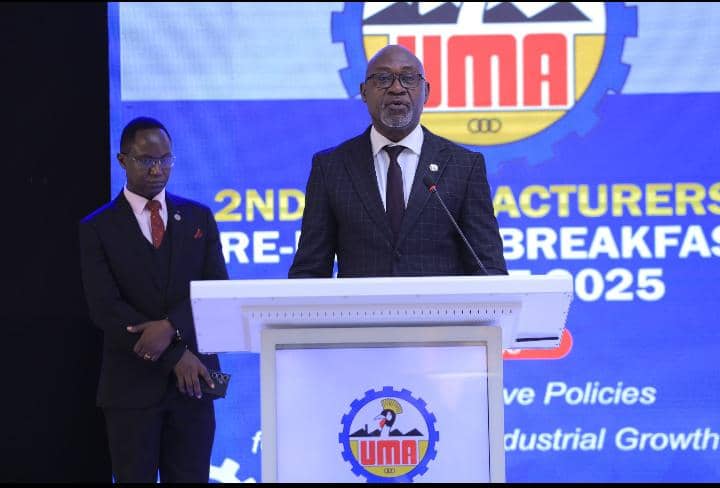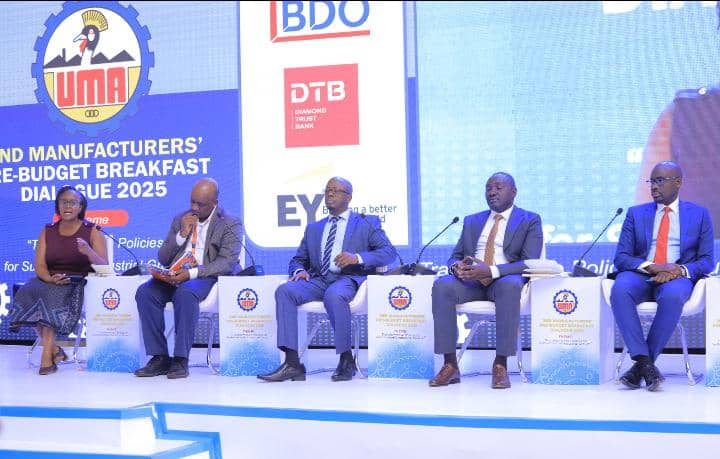
 Tiger FM
Tiger FM

 Tiger FM
Tiger FM
28 February 2025, 11:22 am
By Ronald Ssemagonja
Last year, the Uganda Manufacturers Association (UMA) initiated a budget dialogue with various manufacturers to address challenges facing the sector. Uganda’s Gross Domestic Product (GDP) has the potential to grow from 55 billion to 550 billion dollars within 10 to 15 years if key economic imperatives are implemented by both manufacturers and the government.
Against this background, the second edition was held under the theme, “Transformative Policies for Sustainable Industrial Growth.”
In his remarks, UMA Board Vice Chairman Eddie Senkumba acknowledged the concerns raised by manufacturers.
“We acknowledge the concerns raised today and recognise the pressing need for policy reforms and incentives that promote local production,” he said. He added that there is a clear call for improved access to energy, more efficient infrastructure, and a favourable tax environment to ensure the industry thrives and remains globally competitive.

The Head of Corporate and Business Banking at Diamond Trust Bank (DTB), Kizito Kyambade, reaffirmed the bank’s commitment to the entire manufacturing sector.
“We are committed and will never let you walk alone. We support all your initiatives to grow Uganda’s economy tenfold. We are keen on digital transformation, market access, and funding your capital projects,” he said.
John Tusabe, Director of Tax at BDO, noted that in many organisations, tax matters are left solely to the finance department, but this approach must change at all levels.
“Everyone in an organisation, including the board, needs to have an understanding of the company’s tax obligations to ensure compliance becomes a collective effort,” he emphasised.
Meanwhile, Uganda revenue authority (URA) which was represented by the commissioner, confirmed that they are working with government to make sure that they get other business people on board and also to embrace EFRIS, a tax collection system. “We must work in harmony with the business people, those who are manufacturing, so that we try compliance. We want to thank UMA. You were at the forefront for supporting the EFRIS Technology,” He said.
“The only way we can access low cost capital is to have low sustainable production system. Nobody want to loan or keep their money to a manufacturer who can not guarantee profitability.” Akankwasa, NEMA ED said
“Our first call is to increase the number of products that need required standards.” Deputy executive director UNBS, Patricia Begaine emphasised.

Julius Mukunda, from CSBAG, during the panel discussion, said that they need to be serious about markets for manufacturers especially through all the embassies as Uganda. The event was officiated by the state minister of Trade, industry and cooperatives, Francis Mwebesa, who thanked UMA for the dialogue and urged the manufacturers to continue complying with government for economic development of the Country.
